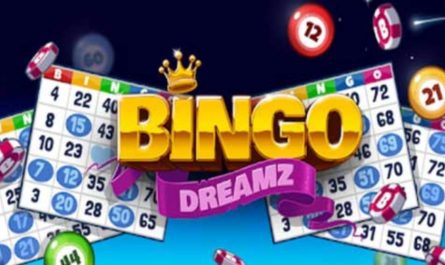Roulette, with its spinning wheel of fortune, has mesmerized players for centuries. Its seemingly simple premise masks a game of intriguing complexity and depth. For beginners, mastering roulette can appear daunting, yet with the right guidance, the path to becoming adept can be both enjoyable and rewarding. This article unveits the essentials of roulette, offering beginners tips and strategies designed to elevate their game from novices to savvy players. From understanding the basics of the roulette wheel to advanced strategies and psychological insights, this guide is your companion on the journey to mastering the timeless game of roulette.
1. Unveiling the Roulette Wheel: A Beginner’s Guide
Roulette is a game of chance, played on a wheel featuring numbers ranging from 1 to 36, alternately colored in red and black, along with one or two green pockets numbered 0 (and 00 in American roulette). The objective is straightforward: predict where the ball will land after the wheel is spun. Beginners should familiarize themselves with the two main variants of the game: European and American roulette, the latter featuring an additional double zero which slightly alters the odds. Understanding the layout of the wheel and the betting table is crucial, as this knowledge forms the foundation upon which successful strategies are built. Practicing on free online roulette games can be an invaluable way to gain familiarity without financial risk. It’s also important to learn the terminology used in the game, from “straight up” bets (betting on a single number) to “outside” bets (betting on various groupings of numbers).

2. Decoding Roulette: Understanding Bets and Odds
Roulette offers a variety of bets, each with its own odds and payouts. Inside bets are placed on specific numbers or small groups of numbers. They offer high payouts but come with low odds of winning. Outside bets, conversely, cover large sections of the wheel, offering better odds of winning but with smaller payouts. Understanding these bets and their odds is critical for strategic play. The house edge also plays a crucial role; for instance, the presence of the “00” in American roulette increases the house edge, making European roulette a more favorable option for players. Smart players calculate their potential returns and assess the risk before placing their bets, always keeping the odds in mind.
3. Strategies for the Smart Roulette Player
While roulette is a game of chance, applying strategies can help manage your bets and potentially increase your chances of winning. One popular strategy is the Martingale System, where players double their bet after every loss, aiming to recoup losses with a single win. Another strategy is the Fibonacci system, a less aggressive approach that involves betting by adding the two previous bets together. It’s important to remember that no strategy can guarantee wins; instead, they should be used to structure play and manage risk. Experimenting with different strategies on free games can help players find the approach that best suits their style and risk tolerance.
4. Bankroll Management: Betting Wisely in Roulette
Effective bankroll management is critical for sustained play and enjoyment in roulette. Players should start by setting a budget for how much they are willing to lose and stick to it. Allocating a specific amount for each betting session and not exceeding it is key to long-term enjoyment. It’s advisable to bet small percentages of your bankroll on individual bets to extend your playtime and enjoyment. Using strategies can also aid in managing your bankroll, but always remember that roulette is unpredictable, and losses should be expected as part of the game. Smart bankroll management can make the difference between a fleeting experience and a fulfilling journey in the world of roulette.
5. The Psychology of Winning: Keeping a Level Head
The psychological aspect of roulette cannot be underestimated. Winning can elicit a rush of adrenaline and euphoria, which can lead to overconfidence and increased risk-taking. Conversely, losses can lead to frustration and the desire to chase losses, often exacerbating the situation. It’s crucial for players to maintain a level head, focusing on the enjoyment of the game rather than the outcome. Setting clear goals and boundaries, and sticking to them, can help maintain a healthy perspective. Embracing a mindset of patience and persistence, while recognizing the random nature of roulette, encourages smarter play and a more rewarding experience.

6. Beyond the Basics: Advancing Your Roulette Skills
Once the fundamentals are mastered, advancing your roulette skills involves a deeper understanding of the game’s nuances and developing a personal playing style. Advanced strategies, such as studying the wheel for biases or adopting more complex betting patterns, can add new dimensions to your play. Networking with other players and learning from their experiences, as well as keeping up with roulette-related literature and resources, can provide valuable insights. Remember, mastery is a continuous journey of learning and adaptation. As you grow more confident and competent, experimenting with different variations of roulette can also enrich your gaming experience, making every spin of the wheel an exciting opportunity for discovery.
Mastering the game of roulette is a journey that combines understanding its mechanics, applying strategic thinking, and managing one’s mindset and bankroll. For beginners, starting with the basics and progressively advancing through practice and strategic play can transform the seemingly daunting roulette wheel into a source of endless fascination and enjoyment. Embrace the journey, apply the tips and strategies shared, and you may find yourself not only mastering the game but also enjoying the rich tapestry of experiences that roulette offers. Remember, in the world of roulette, every spin brings a new opportunity for learning, enjoyment, and potential victory.




